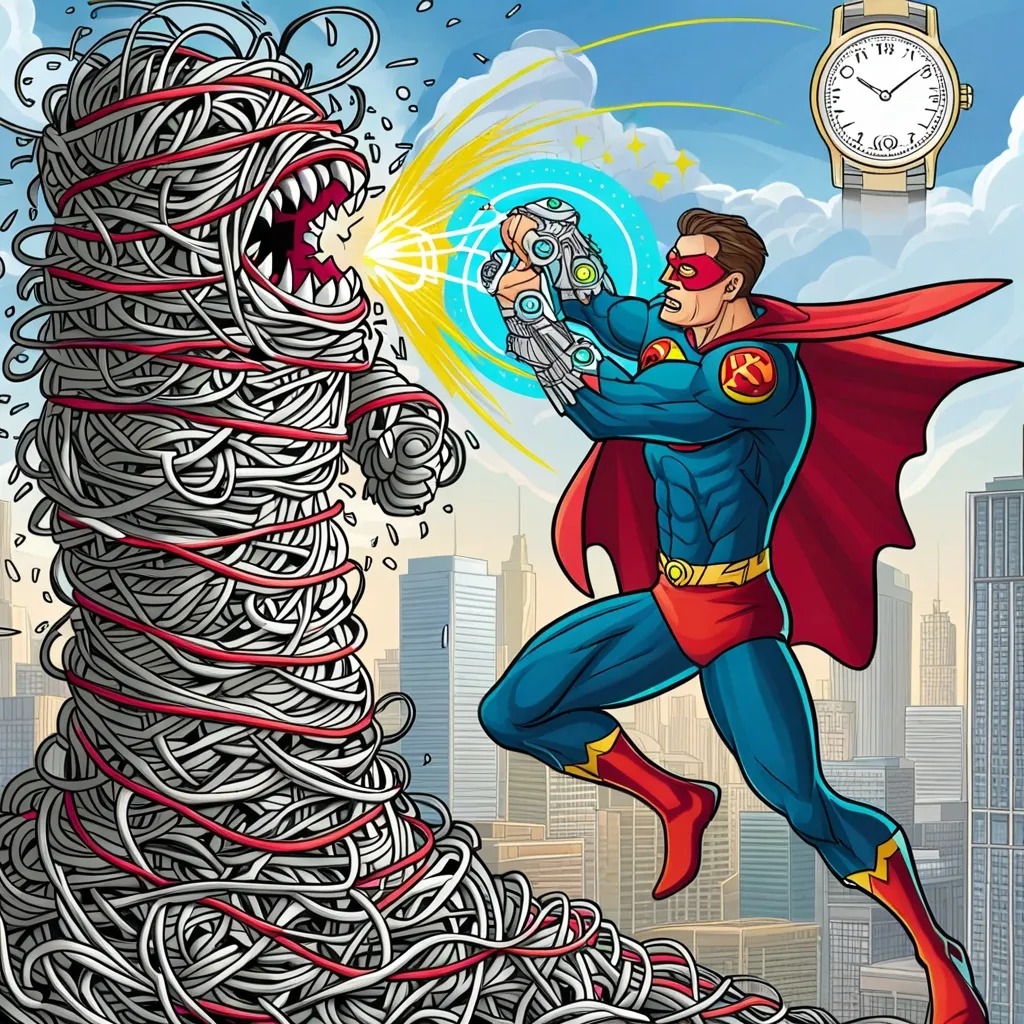Imagine starting your day by picturing its perfect ending. This isn’t about the usual to-do lists or morning routines; it’s about a profound shift in how you approach productivity. This method, which we can call “chronological inversion,” involves reverse-engineering your day to ensure every action aligns with your desired outcomes.
Visualizing the End
The first step in this process is to vividly imagine how you want your day to end. What does success look like for you? Is it completing a critical project, feeling energized and fulfilled, or simply enjoying a peaceful evening? Take a few minutes each morning to close your eyes and visualize this ideal ending. See yourself achieving your goals, feeling satisfied, and reflecting on a day well-spent.
This visualization is more than just a motivational exercise; it sets a clear target for your day. By focusing on the outcome, you create a mental roadmap that guides your actions. It’s about understanding what you need to accomplish to reach that perfect close.
Breaking Down the Day
Once you have a clear vision of your day’s end, it’s time to work backward. Identify the key milestones and tasks that need to be completed to reach your desired outcome. This isn’t about making a generic to-do list; it’s about mapping out the specific steps that will lead you to your goal.
For example, if your goal is to complete a critical project, break it down into smaller, manageable tasks. What needs to be done first? What resources do you need? Who do you need to collaborate with? By reverse-engineering the process, you ensure that each task is aligned with your ultimate goal.
Prioritizing Actions
Not all tasks are created equal. When you’re working backward from your desired outcome, you can see which tasks are truly essential and which can be delegated or postponed. This helps you prioritize your time more effectively.
Consider the 80/20 rule, where 20% of your efforts often yield 80% of the results. By focusing on the most critical tasks first, you maximize your productivity. Ask yourself, “What are the three big steps I need to take today to move closer to my goal?” Then, break those steps down into smaller, actionable items.
Removing Distractions
One of the biggest obstacles to productivity is distraction. When you’re working toward a clear outcome, it’s easier to identify what’s truly important and what can be ignored. Remove any fluff or unnecessary tasks that don’t contribute to your goal.
For instance, if you find yourself constantly checking social media or email, set specific times to do so. Use tools or apps that help you stay focused, and eliminate multitasking, which can significantly reduce your productivity.
Creating a Daily Commitment
To make this method work, you need to commit to taking action every day. It’s not about finding large blocks of time; it’s about making small, consistent efforts. Even 15 minutes a day can add up to 90 hours over the course of a year.
Imagine waking up 30 minutes earlier each day to focus on your most important task. What if you dedicated just one hour each evening to planning and preparing for the next day? These small commitments can make a significant difference in your productivity and help you stay on track.
Evaluating Progress
Regular evaluation is crucial to this process. Set reminders to check in with yourself at specific intervals – whether it’s daily, weekly, or monthly. Ask yourself, “What actions are yielding the best results?” and “What can I improve?”
This reflective process helps you refine your approach and ensure that you’re using your time efficiently. It’s about learning from your experiences and adjusting your strategy as needed.
Applying This Method in Various Aspects of Life
Chronological inversion isn’t limited to work or professional goals. You can apply this method to any area of your life where you want to achieve specific outcomes.
For example, if you’re planning a vacation, start by visualizing the perfect trip. What does the last day of your vacation look like? What experiences do you want to have? Then, work backward to plan the itinerary, book flights and accommodations, and prepare for the trip.
In finance, this method can help you set and achieve financial goals. Imagine your financial situation at the end of the year or in five years. What steps do you need to take to get there? Break down your long-term goals into smaller, manageable tasks, such as saving a certain amount each month or investing in specific assets.
The Psychological Aspect
This approach taps into your brain’s natural problem-solving skills. By focusing on outcomes rather than tasks, you engage your brain in a more strategic and creative way. It’s not just about getting things done; it’s about crafting a day that unfolds with purpose and precision.
When you visualize your desired outcome, you create a sense of clarity and direction. This clarity helps you stay motivated and focused, even when faced with challenges or setbacks.
Real-Life Examples
To illustrate how this works, let’s consider a personal example. Suppose you want to start a new business. Instead of getting bogged down in the details of business plans and market research, start by visualizing what your business will look like in a year. See yourself successfully running the business, serving customers, and generating revenue.
Then, work backward to identify the key steps you need to take to get there. This might include developing a business plan, securing funding, finding a location, and hiring staff. By focusing on the outcome, you can break down these tasks into smaller, actionable items and create a clear roadmap for your business.
Conclusion
Chronological inversion is a powerful tool for boosting productivity and achieving your goals. By starting with the end in mind and working backward, you ensure that every action aligns with your desired outcomes. This method helps you prioritize your time, remove distractions, and stay focused on what truly matters.
It’s not just about getting things done; it’s about crafting a day – and a life – that unfolds with purpose and precision. So, the next time you wake up, take a moment to visualize the perfect end to your day. Then, start working backward to make that vision a reality.






